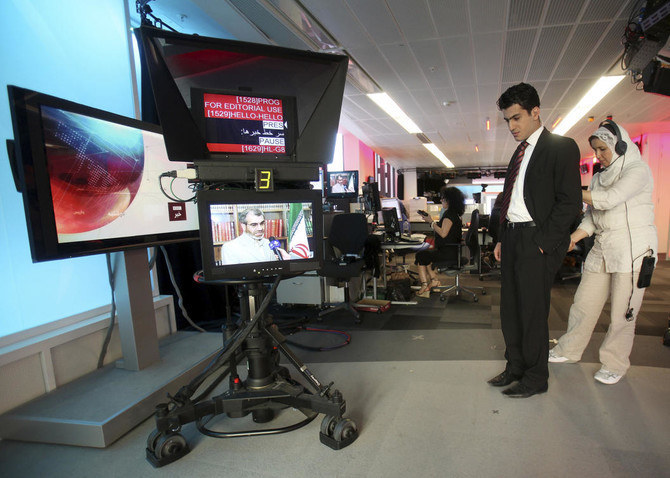DUBAI: The BBC World Service has filed a new urgent appeal to the UN this week against Iran over the online violence directed at women journalists working for BBC News Persian.
Women journalists at BBC News Persian face relentless online attacks and harassment, including threats of rape and death, the BBC said.
“We absolutely deplore the violent, misogynistic and gendered harassment our women journalists have to face every day,” said Liliane Landor, senior controller of BBC International News and director of the World Service.
The harassment includes threats of death and rape, attacks on their credibility, hacking and phishing of their emails and telephones, and false and defamatory stories about their personal lives.
The information obtained through hacking and phishing is often used to spread false stories about them online, which is then used in the interrogation of their family members in Iran, the BBC added.
The false stories not only attack them professionally but also aim to taint their character by questioning their relationship with co-workers and commenting on what they wear.
The online abuse and harassment is severely impacting female journalists at BBC News Persian, with many of them saying in interviews that they have opted out of using social media entirely due to fear of harassment.
Landor added: “Trusted and impartial journalism is fundamental to any democracy and it is only by working together that we can ensure the safety of journalists everywhere and ensure women’s voices are included. We have to be able to work unhindered, free from threats and free from abuse.”
The constant attacks have resulted in serious mental and physical health issues, including anxiety, psychological trauma and depression.
The appeal from the BBC calls on Iran to take action against those responsible for the online violence towards women journalists by investigating and prosecuting them.
International counsel for the BBC World Service, Caoilfhionn Gallagher QC and Jennifer Robinson, said: “Women journalists at BBC News Persian face abhorrent online violence every day simply because they are doing their job. This is a paradigm case of what UN experts call ‘gendered censorship’.”
They added: “Misogynist, sexist online abuse and all threats of physical or sexual violence towards journalists are intended to force women offline and to silence women journalists. It is unacceptable and it must stop.”
BBC has made multiple UN complaints since 2017. Since BBC News Persian TV started in 2009, the staff and their families have faced harassment and intimidation, the BBC said.
BBC News Persian staff cannot return home to Iran because of the risk of arrest and prosecution resulting in the media network not having any staff working in the country.
And it is not just the female journalists who are harassed. Their family members have been arrested, detained, repeatedly interrogated, fired from their jobs, had their passports confiscated and pressured to encourage their family members to leave the BBC and return to Iran.
In 2017, Iran announced a national security criminal investigation targeting 152 BBC News Persian staff members and froze any assets they had in Iran.
Iran has “international obligations of due diligence,” said Gallagher and Robinson. “We call on the UN to condemn the attacks and to ensure Iran meets its international obligations.”


























